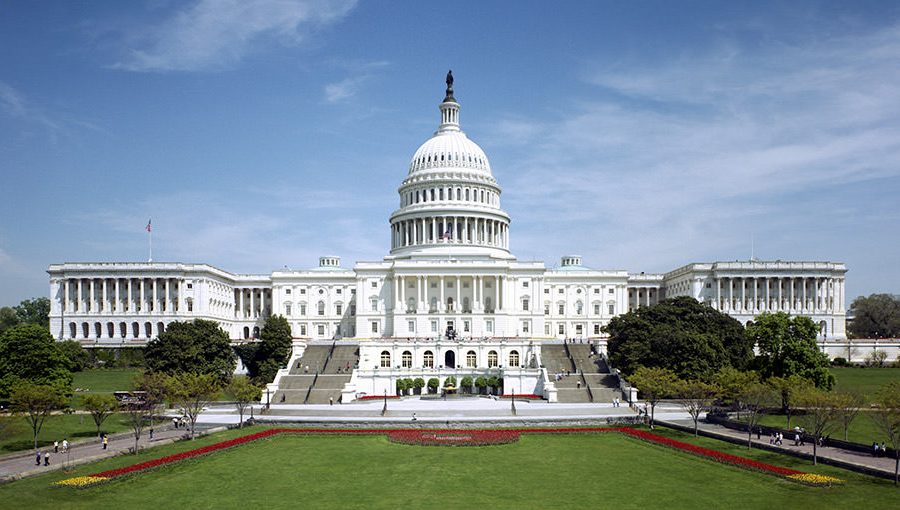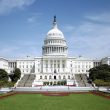Public-safety reps react to apparent demise of bill with NG911 funding
Public-safety leaders today expressed disappointment that efforts to secure federal funding for next-generation 911 (NG911) deployments likely will need to begin anew after hopes to pass the $2 trillion Build Back Better bill were dashed with an announcement of opposition from Sen. Joe Manchin (D-W.V.).
Senate Democrats have been trying for months to persuade moderate Democrats Manchin and Kyrsten Sinema to back the social spending bill that initially was described as a $1.75 trillion package but has since been determined to cost hundreds of billions of dollars more. A small fraction of that total—$500 million—was slated to be used to help fund NG911 efforts that have been estimated to cost at least $10 billion to implement nationwide.
But even that amount of NG911 funding seems doubtful through the Build Back Better initiative after Manchin this weekend announced that he will not support the massive spending measure. Democrats needed support from all 50 Democrats and a tiebreaking vote from Vice President Kamala Harris to pass the bill.
Technically, the Build Back Better bill still has a chance to pass, as Senate Majority Leader Chuck Schumer (D-N.Y.) has vowed to bring the legislation to a vote next month. However, most Beltway sources believe that such a vote largely would be symbolic, as there would be virtually no chance of the spending package passing, absent a significant shift in positions among senators.
Mel Maier, chair of the Public Safety NG911 Coalition, expressed disappointment that the limited NG911 funding in the Build Back Better (BBB) bill apparently will not be realized.
“While the amount of funding for NG911 included in the House’s version of BBB was woefully inadequate, we are disappointed that needed fundamental improvement to our nation’s 911 infrastructure will be delayed further,” Maier said in a prepared statement. “The Public Safety NG911 Coalition will continue working with leaders in Congress to identify a path for this nationwide priority. Working across the aisle, there is an opportunity to deliver needed resources that will save lives, and we encourage Congress to find the solution in the new year.”
Derek Poarch, executive director and CEO of the Association of Public-Safety Communications Officials (APCO)—a member of the Public Safety NG911 Coalition—echoed this sentiment.
“Funding next-generation 911 has bipartisan support,” Poarch said in a prepared statement. “Regardless of the future for the BBB, APCO will continue working to find a vehicle for fully funding this most critical of critical infrastructure.”
NENA: The 911 Association expressed its position through a prepared statement from CEO Brian Fontes.
“Because the Build Back Better Act was the vehicle chosen by our legislative champions to carry the NG911 funding, that funding is now stalled, along with everything else in that bill,” Fontes said. “But the transition to NG911 is still an urgent national priority, and all sides agree there’s no way to complete that transition in this decade without an infusion of federal funding.
“Thus, while we’re disappointed at what appear to be insurmountable hurdles to passage of Build Back Better, we remain determined to obtain federal NG911 transition funding via any vehicle that can be passed and signed into law. We’ll be doing everything we can to encourage Congress to keep at it on this bipartisan issue and make nationwide NG911 a reality.”
Harriet Rennie-Brown, executive director of the National Association of State 911 Administrators (NASNA), reiterated the desire to find another legislative vehicle that incorporates NG911 funding.
“We are disappointed, of course,” Rennie-Brown said in a prepared statement. “But we are still hopeful that we may find some other path to moving our country fully to NG911.”
With the apparent failure of the Build Back Better bill, public-safety officials are looking at other legislative avenues to secure the much-wanted federal funding for NG911, which would transition 911 centers to an IP-based platform that would let public safety leverage a vast number of databases and modern technologies.
In September, Sen. Amy Klobuchar (D-Minn.) and Sen. Catherine Cortez Masto (D-Nev.) co-sponsored standalone NG911 funding legislation with language that mirrored the wording in the Build Back Better proposal, except the funding total was $10 billion. No standalone NG911 bill has been introduced in the House, although Rep. Anna Eshoo (D-Calif.) was credited for language calling for $15 billion in NG911 funding in the original infrastructure bill—legislation that was later was passed without NG911 funding—and the Build Back Better proposal.
Public-safety representatives have said that there is bipartisan support conceptually for bipartisan support for federal NG911 funding, but such measures repeatedly have failed to gather enough political momentum to reach a stage in which enactment has been considered to be a serious possibility. With this in mind, many Beltway sources continue to believe that best chance for federal NG911 funding to be approved is to attach the language to larger “must-pass” legislation.
















